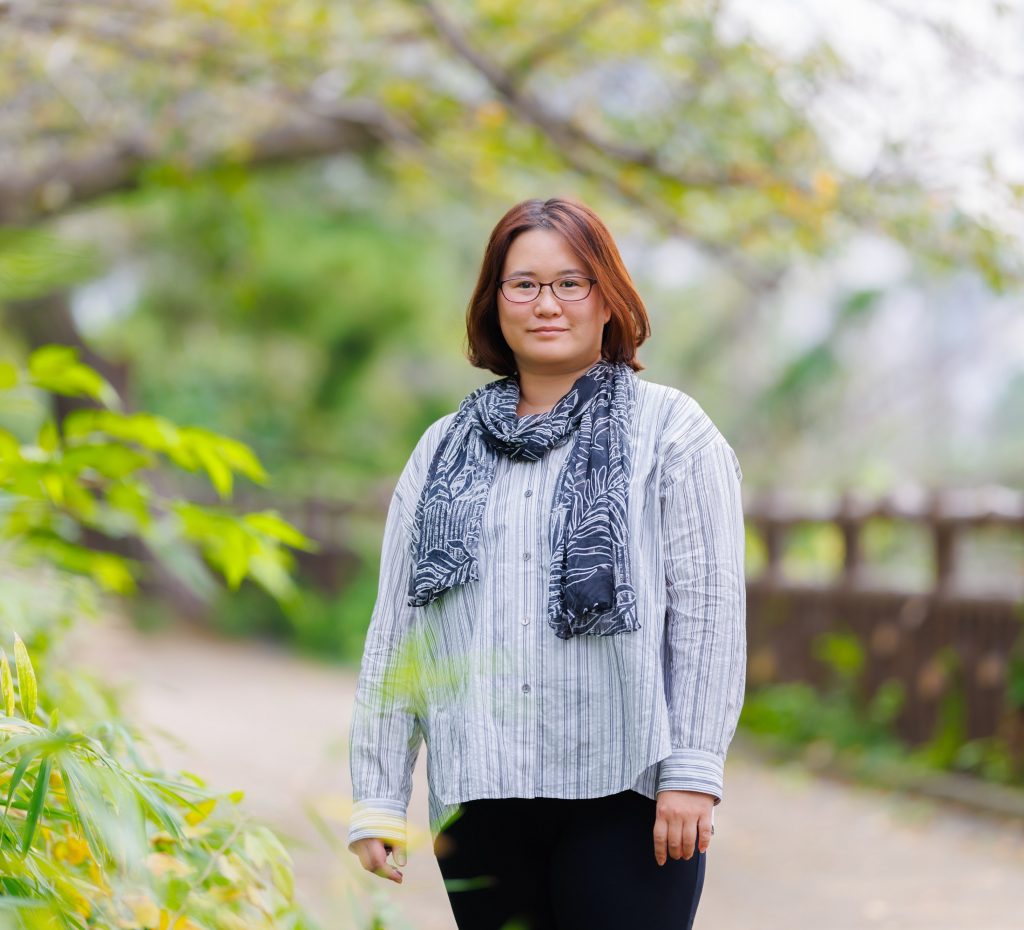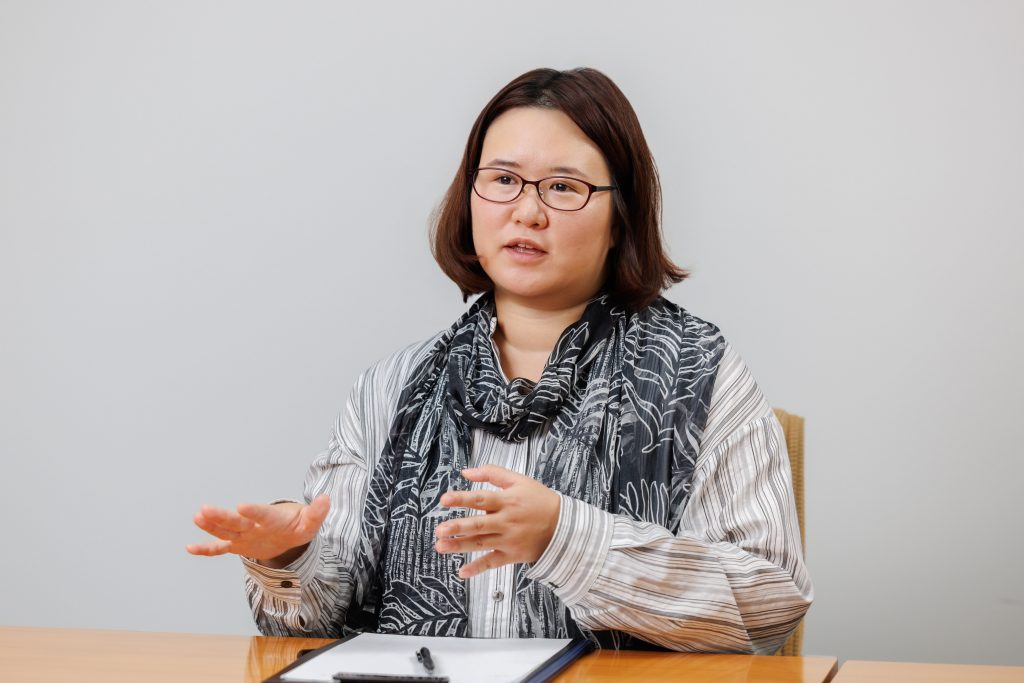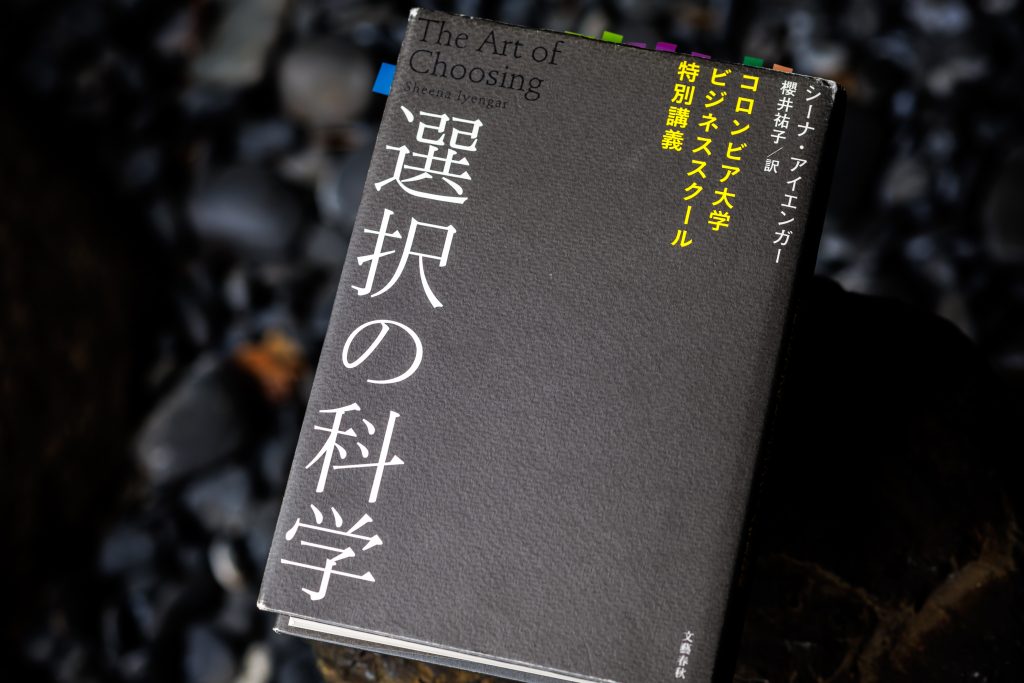
Associate Professor Yukari Ishii of the Faculty of Human Sciences interviews people who identify with a diverse range of gender and sexuality. She studies ways to recognize gender identity, social discourses that influence such ways, and the difficulties faced in life.
I study gender and sexuality from the perspective of sociology. Nowadays, it seems that the message of acceptance towards LGBTQ+ people and respect for diversity of identity is gradually being reflected in education, economic activity, public policy, etc. However, have we solved the social problems?
Under these circumstances, the work of sociologists is to take a step back and analyze data—such as interviews and documents—to examine how people’s self-image regarding gender and sexuality mutually influences discourse and the state of society as well as the difficulties in their lives, including those that may be overlooked by the individuals.
Unspoken difficulties in the lives of LGBTQ+ people

Compared with cisgender and heterosexual people, sexual minorities tend to be put into financial crisis. Take the example of when people whose gender identity differs from their assigned gender at birth try to use welfare. They face difficulties when trying to use systems that assume a gender binary of male or female, resulting in them receiving inappropriate treatment at shelters and during home-visit nursing care.
This causes them to move away from welfare and return to a homeless life, work as sex workers, or live in internet cafés. It is easy for such people to become isolated from their families and society, and even though they are in greater need of welfare, the existing systems do not function as safety nets.
Among minorities, it is even harder to see the difficulties faced by people at the periphery. Let’s think in terms of social approval. I work together with Lily Miyata from Kansai University to study the Josō (male to female cross-dressing) communities in Kansai area. Josōsha and men who like them often face bias or discrimination from people around them.
They also face other issues, for instance, outing; their personal information being exposed on the internet, and the risk of sexually transmitted infections. While they face similar difficulties to those of gay and transgender individuals, they regard what they are doing as a bit of fun, and not an identity problem, and avoid talking about the issue. When they do so, the issues become overlooked. A part of my work is to shed light on those issues.
The relationship between the ability to question norms and being in a minority
Going forward, I intend to look at intersex individuals, whose sex characteristics do not fit the typical definition of male or female. Within the humanities and social sciences in Japan, there is a lack of research, and the actual situation is not fully understood. Although there are medical articles, there are limited written materials for intersex individuals or the general public. Therefore, I hope to introduce reliable information from overseas to Japan and study the actual situation.
People who have some minority status or characteristic are made to be acutely aware of the obstacles that they face in their daily lives. For example, sexual minorities face problems such as being unable to marry, holding their partner’s hands, or having to hide their identity. Through such experiences come opportunities to question the fundamentals of society, such as what it means to be male or female or the definition of marriage.
Dealing with these questions will enrich our society and make it more diverse. The role of sociology is to deepen such perspectives and keep questioning the systems of society. I see sociology as a discipline that believes in and explores the possibility that experiences of frustration, conflict, and setbacks can become the driving force to change society.
The book I recommend
“The Art of Choosing”
by Sheena Iyengar, Japanese translation by Yuko Sakurai, Bungeishunju

This book relativizes the values related to “choice” in American culture and uses unique experiments to explain the kind of cultural background behind the assumptions surrounding “choice.” Like the works of Prof Iyengar, I hope to be capable of properly explaining cultural differences beyond simply importing Western gender theory.
-
Yukari Ishii
- Associate Professor
Department of Sociology
Faculty of Human Sciences
- Associate Professor
-
Dr. Yukari Ishii is an Associate Professor at the Department of Sociology, Faculty of Human Sciences, Sophia University, specializing in Sociology of Gender and Sexuality, especially focusing on Japanese Transgender, Cross-dresser, and Queer Studies. Dr Ishii is the author of the book Transgender and Postmodern Society: Diversified Gender Identity and Life of Those with Ambiguous Self-image (in Japanese), which describes the identity, medical discourse, communities, drama scripts, families, and theory of gender-non-conforming people. She has also received several competitive fundings, for instance, Research on Intersex Individuals and Their Situation in Japan (24K15580) Grant-in-Aid for Scientific Research. Dr Ishii received her Ph.D. in Sociology after completing the doctoral program at the graduate school of Tokyo Metropolitan University.
- Department of Sociology
Interviewed: October 2024